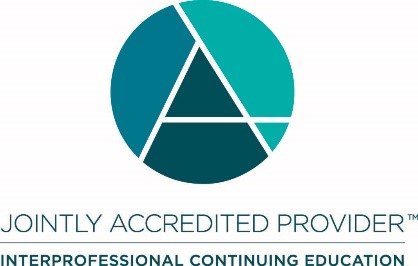Implementing Clinical Trials in the Community Setting
Many community practices do not have the necessary resources and expertise to offer clinical trials to patients, which limits access in remote areas. This educational session will allow community centers to better understand how to implement and enhance clinical research programs at their institution.
Offering clinical trials would give community cancer centers a competitive advantage, and these institutions would be able play a role in medical science by providing cutting edge therapy to the surrounding communities. Establishing a clinical trials program, may also help community centers recruit highly qualified physicians by offering them the chance to be involved in clinical research, which oftentimes, is an opportunity that most clinical providers look for when searching for employment. Participation in clinical research allows clinicians the ability to publish findings on their work. Clinical research programs may also help community hospitals generate additional income through the addition of new patients and new areas to diversify revenue streams.
Target Audience
This educational program is designed to meet the educational needs of physicians/oncologists, nurse practitioners, nurses, physician assistants, pharmacists, and other health care professionals who manage patients with cancer.
Learning Objectives
Following this program, participants should be able to:
- Define the benefits and challenges of implementing trials at community centers.
- Review practical steps and resources needed for implementing clinical trials at a community center.
Jennie R. Crews, MD, MMM
Fred Hutchinson Cancer Research Center/ Seattle Cancer Care Alliance
NCCN Medical Education Disclosure Policy
It is the policy of NCCN that every 12 months, all faculty, moderators, activity planners and all internal planning staff participating in NCCN continuing education activities are expected to disclose any financial relationships with a commercial interest as defined by the Accreditation Council for Continuing Medical Education (ACCME) Standards for Commercial Support. In addition, all faculty presentations have been reviewed for adherence to the ACCME’s Standards for Commercial Support (the provider develops activities/educational interventions independent of commercial interests [SCS 1, 2 and 6] by experts on the topics).
Per the ACCME Standards for Commercial Support, individuals who do not disclose relevant financial relationships will be disqualified from involvement in the CE activity as a content developer, planner, or presenter. A complete list of individuals’ relationships with external entities is available upon request.
Definitions
NCCN continuing education considers financial relationships to create a “conflict of interest” when an individual has both a financial relationship with a commercial interest and the opportunity to affect CE content about the products or services of a commercial interest with which he/she and/or a spouse or partner has a financial relationship.
NCCN continuing education considers “relevant financial relationships” as financial relationships in any amount occurring within the past 12 months that create a conflict of interest. NCCN does not set a minimal dollar amount for relationships to be significant. Inherent in any amount is the incentive to maintain or increase the value of the relationship.
Faculty Disclaimers
All faculty for this continuing education activity are competent in the subject matter and qualified by experience, training, and/or preparation for the tasks and methods of delivery.
Faculty presentations may include discussion of off-label use. Faculty will disclose that the use in question is not currently approved by the FDA per the product labeling.
Faculty Disclosures
The faculty listed below discloses no relevant financial relationships:
Jennie R. Crews, MD
NCCN Staff Disclosures
The NCCN Activity Planning staff listed below discloses no relevant financial relationships:
Robert W. Carlson, MD; Melissa Esplen; C. Lyn Fitzgerald (employed by NCCN until 3/31/20); Mark A. Geisler; Kristina M. Gregory, RN, MSN, OCN; Kristin Kline Hasson; Rose Joyce; Karen Kanefield; Diana Krause, MHA; James McCanney, JD; Lisa Perfidio, MS; Shannon Ryan, CMP; Kathy Ann Smith, CHCP; Jessica Sugalski, MPPA; Sarah Weinstein; Gary J. Weyhmuller, MBA, SPHR
The NCCN Activity Planning staff listed below discloses the following relevant financial relationships:
Wui-Jin Koh, MD
IBM Watson Health for Oncology and Genomics; Scientific Advisor

In support of improving patient care, National Comprehensive Cancer Network (NCCN) is jointly accredited by the Accreditation Council for Continuing Medical Education (ACCME), the Accreditation Council for Pharmacy Education (ACPE), and the American Nurses Credentialing Center (ANCC), to provide continuing education for the healthcare team.
Physicians
NCCN designates this enduring material for a maximum of 0.50 AMA PRA Category 1 Credit™. Physicians should claim only the credit commensurate with the extent of their participation in the activity.
Nurses
NCCN designates this educational activity for a maximum of 0.50 contact hour.
Pharmacists
NCCN designates this knowledge-based continuing education activity for 0.50 contact hour (0.050 CEUs) of continuing education credit. UAN: JA4008196-0000-20-060-H01-P
Physician Assistants
NCCN has been authorized by the American Academy of PAs (AAPA) to award AAPA Category 1 CME credit for activities planned in accordance with AAPA CME Criteria. This activity is designated for 0.50 AAPA Category 1 CME credit. Approval is valid until March 1, 2021. PAs should only claim credit commensurate with the extent of their participation.
Available Credit
- 0.50 AAPA Category 1 CME credit
- 0.50 ACPE contact hours
- 0.50 AMA PRA Category 1 Credit™
- 0.50 ANCC contact hours
- 0.50 Participation
Required Hardware/software
To complete this activity, users will need:
- A device with an Internet connection
- One of the two latest versions of Google Chrome, Mozilla Firefox, or Safari (Internet Explorer is no longer supported)
- Adobe Flash Player and/or an HTML5 capable browser for video or audio playback
- Adobe Reader or other PDF reader software for certificate viewing/printing

 Facebook
Facebook X
X LinkedIn
LinkedIn Forward
Forward